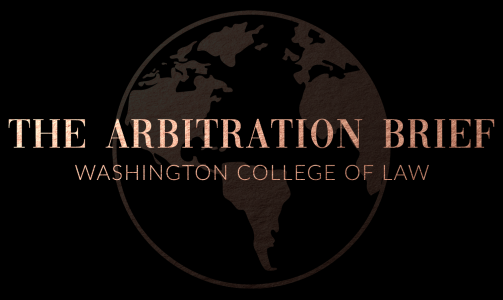By: Jake Helfant
States have historically utilized provisions for Investor-State Dispute Settlement (“ISDS”) to secure foreign investment, ensuring that disputes with foreign enterprises are governed and processed outside of the jurisdiction of sovereign states. Bilateral Investment Treaties (“BITs”) and Free Trade Agreements (“FTAs”) typically include ISDS provisions, mandating arbitration through the International Center for Settlement of Investment Disputes (“ICSID”)–an institution part of, and funded by, the World Bank. These provisions often leave states at a disadvantage, as they cannot initiate proceedings against foreign investors and states are typically unsuccessful in asserting counterclaims on the merits. More than 150 countries have signed and ratified the ICSID convention, subjecting certain investment claims to the rules and regulations established by ICSID, for which ICSID provides institutional and procedural support.
As of December 2022, twenty-two Latin America & Caribbean (“LAC”) states have been subject to over 370 investor-state disputes, with more than half of LAC states facing claims under ISDS provisions. Arbitral panels issued over 160 awards in these cases, ruling in favor of investors in about half of them and in favor of states in the other half. Notably, cases involving Argentina, Venezuela, Peru, Mexico and Ecuador have contributed over 95% of total award and settlement costs in LAC, while European and North American companies account for over 83% of investment claims brought against LAC states.
ICSID faced a significant legitimacy crisis following a series of cases brought against Argentina after the country’s financial crisis of the early 2000s. The set of cases settled through ICSID during these years had “very different interpretations of the law and diametrically opposed holdings”, calling into question the viability of the ICSID arbitral system. From 2007 to 2012, Bolivia, Ecuador, and Venezuela all withdrew from the ICSID Convention, citing the institution’s preference for transnational corporations over states and their citizens.
In recent years, companies have successfully brought numerous ISDS claims against Colombia, Peru, and Mexico. Colombia’s endorsement of thirteen new BITs and eight new FTAs between 2005 and 2015, which authorized ICSID arbitration, led to a rise in claims against the country. Indeed, all nineteen ICSID arbitrations against Colombia were registered after 2015. The “Mining & Quarrying” industry emerged as the most involved sector in Colombia’s ICSID cases.

Following Gustavo Petro’s narrow victory in the May 2022 Colombian elections, in which Petro became the country’s first leftist president, Colombia potentially entered into a new era of ISDS policy. Colombia may follow in the footsteps of Bolivia, Ecuador, and Venezuela by relinquishing its obligations under the ICSID Convention. Colombia is not the only LAC country considering denouncing the ICSID Convention. Honduras is currently facing a claim from an American company for around $11 billion, which has prompted the Central American nation to reassess its commitments to the ICSID.
Petro’s administration, seeking closer ties with Venezuela, signed a BIT with its neighbor in early 2023–the first BIT signed by Venezuela since 2008. The agreement reflects Venezuela’s denunciation of the ICSID Convention, providing that disputes between investors and the host state may be resolved in the domestic courts of the host state or submitted for resolution under the 1976 UNCITRAL Arbitration Rules. This option provides far greater flexibility for the state compared to the rules outlined in the ICSID Convention. The agreement also makes it more difficult for corporations to bring claims against host states, mandating a five-year sunset clause, as opposed to the ten years often found in BITs. Through this agreement, Petro’s administration displays a willingness to include alternative mechanisms for dispute resolution in future investment treaties, and perhaps abandon the ICSID Convention entirely.
However, denouncing the ICSID Convention might prove politically challenging given Petro’s broader policy ambitions in the energy and healthcare space, as well as his relatively low approval rating. Even if Petro denounces the ICSID Convention, Colombia remains bound to the institution for the foreseeable future due to existing BITs, FTAs, and ongoing disputes under the ICSID Convention.
Jake Helfant
Despite concerns about nationalization under Petro’s administration, the president assured the public that his vision for Colombia did not include expropriation. Petro prioritizes a transition away from fossil fuels, despite oil and coal production making up around half the value of the country’s exports. Though Petro has not stated how his administration will bring about this economic and energy transition, expropriation or burdensome environmental standards would likely result in further ICSID claims. In March, 220 organizations–including environmental interests and labor unions–urged withdrawal from certain international investment treaties. These organizations argued that decisions made by ICSID arbitral tribunals often favor corporate interests at the expense of human rights and environmental protection.
Based on the Colombia-Venezuela BIT, it remains likely that the Petro administration will at least exclude ICSID provisions in any new BITs or FTAs that it signs. Colombia may consider withdrawing from current BITs and FTAs or exploring the possibility of negotiating exclusions of ICSID provisions. However, denouncing the ICSID Convention might prove politically challenging given Petro’s broader policy ambitions in the energy and healthcare space, as well as his relatively low approval rating. Even if Petro denounces the ICSID Convention, Colombia remains bound to the institution for the foreseeable future due to existing BITs, FTAs, and ongoing disputes under the ICSID Convention. However, the future trajectory of ISDS in LAC remains uncertain. Given the growing calls for states to exit current investment treaties due to concerns over labor standards, climate change, and alleged bias against state parties, substantial reforms may be imperative for the long-term viability of ISDS, particularly the ICSID, in the LAC region.
